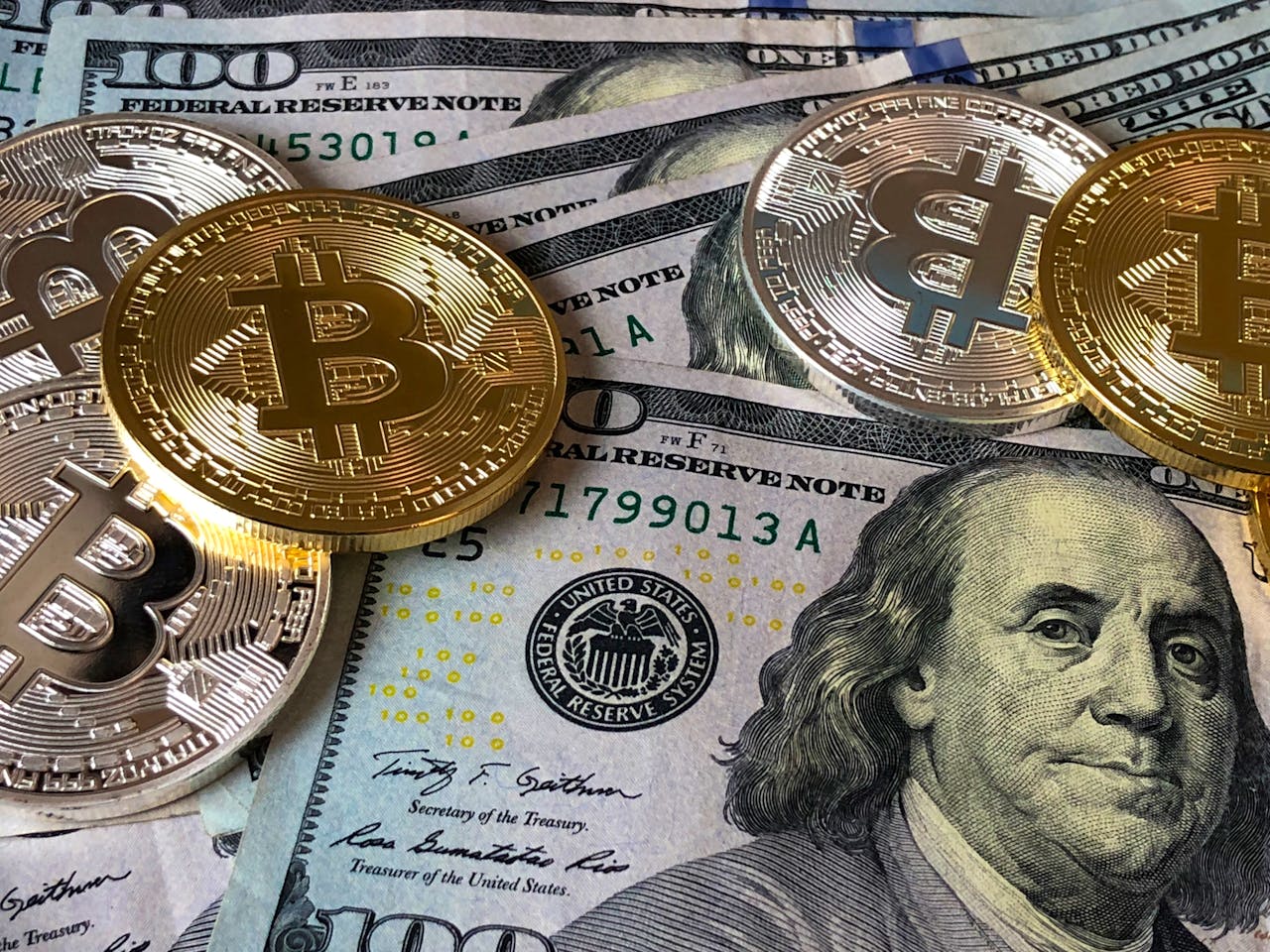If you’ve opened a finance news app recently or browsed crypto investor groups, you’ve probably seen these three letters: ETF—specifically, Bitcoin ETF.
In early 2024, the U.S. SEC officially approved the first batch of Bitcoin spot ETFs, which quickly became one of the hottest topics among institutions, retail investors, and media alike.
But what exactly is a Bitcoin spot ETF? How is it different from holding Bitcoin directly? And is it suitable for everyday investors?
Let’s break it down in plain English—with zero jargon and no hype.
1. So What Is a Bitcoin Spot ETF?
A Bitcoin spot ETF is essentially a publicly traded fund that holds real Bitcoin, allowing you to gain price exposure without needing to buy or store crypto yourself.
In other words: You buy shares in a fund, and the fund actually owns Bitcoin for you.
For example, when you invest in one unit of IBIT (BlackRock’s Bitcoin spot ETF), you indirectly own a small piece of real Bitcoin held in custody.
Prices fluctuate in real time—just like actual Bitcoin.
2. Spot ETF vs Futures ETF: What’s the Difference?
This is the most common source of confusion. Let’s clear it up with a simple comparison chart:
| Feature | Bitcoin Spot ETF | Bitcoin Futures ETF |
|---|---|---|
| Underlying Asset | Actual Bitcoin (held in cold storage) | CME Bitcoin futures contracts |
| Tracking Accuracy | High (reflects real-time spot prices) | Lower (affected by contango/backwardation) |
| Cost Structure | Lower, more transparent | Higher due to roll costs and complexity |
| Market Manipulation Risk | Lower (based on large real-time markets) | Higher (smaller futures market easier to sway) |
| SEC Approval Date (U.S.) | January 2024 | October 2021 |
Prior to 2024, U.S. investors could only buy futures-based ETFs like BITO from ProShares. Spot ETFs, however, are widely considered the “real deal” for mainstream crypto investing.
3. Who Offers Them? 2025 Market Overview
As of June 2025, over a dozen Bitcoin spot ETFs are live in the U.S. Here are the top ones:
| ETF Name | Issuer | Ticker | AUM (Assets Under Mgmt) | YTD Performance |
|---|---|---|---|---|
| iShares Bitcoin Trust | BlackRock | IBIT | $21.5B | +41.2% |
| Fidelity Wise Origin | Fidelity | FBTC | $12.3B | +39.8% |
| Bitwise Bitcoin ETF | Bitwise | BITB | $5.1B | +40.9% |
| ARK 21Shares ETF | ARK + 21Shares | ARKB | $4.4B | +38.7% |
Key Observations:
- IBIT is currently the most traded and liquid Bitcoin spot ETF
- Institutional investors (pensions, hedge funds, family offices) are entering through ETFs
- Fees range from 0.19% to 0.25%, much lower than crypto exchanges
4. Why Is Everyone Talking About It?
Because spot ETFs provide a low-barrier, fully regulated way to invest in Bitcoin. Before this, investing in BTC came with:
- Risk of losing your wallet or private keys
- Concerns over exchange hacks or fraud
- Complex tax implications
- Emotional stress from volatile markets
Now, you can buy Bitcoin exposure in your regular brokerage account, just like a stock. That’s huge for traditional investors, retirement accounts, and the crypto-curious.
Even more importantly, it opens the door for billions in institutional capital to legally enter the crypto market—boosting demand and price stability.
5. Are There Any Risks?
Absolutely. A Bitcoin spot ETF isn’t risk-free:
- Price still follows Bitcoin’s wild volatility (much more than regular stocks)
- Tax treatment remains a gray area (not all ETFs offer “in-kind redemption” advantages)
- Custody risk exists—even with Coinbase or BitGo
- Regulatory risk—future governments may tighten crypto laws or impose taxes
Also, ETF trading is limited to market hours, unlike 24/7 crypto markets. That may frustrate active traders.
6. Who Should Consider Buying One?
✅ Ideal for:
- Investors who want crypto exposure without managing wallets
- People who prefer regulated environments and stock-like assets
- Institutional funds, IRAs, or retirement portfolios
- Long-term believers in Bitcoin who dislike technical headaches
❌ Not ideal for:
- Day traders seeking leverage and 24/7 action
- People looking to invest in next-gen DeFi or NFT projects
- Investors who lack conviction in BTC’s long-term value
7. Final Thoughts
A Bitcoin spot ETF isn’t perfect—but it may be the most important bridge between traditional finance and crypto we’ve seen so far.
It doesn’t replace Bitcoin itself, but it opens up access for millions of new investors, many of whom were previously shut out due to technical or legal barriers.
If you believe Bitcoin still has a role to play in the next decade of digital finance, a spot ETF may be the simplest, safest way to participate—today.
FAQ
1. Is a Bitcoin spot ETF the same as owning actual Bitcoin?
Not exactly. When you buy a Bitcoin spot ETF, you’re gaining exposure to Bitcoin’s price—but you don’t actually hold the cryptocurrency yourself. The fund does, and you own shares of that fund. You can’t withdraw the Bitcoin into a wallet.
2. Can I lose money with a Bitcoin spot ETF?
Yes. Just like Bitcoin itself, spot ETFs are highly volatile. If the Bitcoin price drops 15% in a day, your ETF investment will reflect that loss. They’re not immune to market risks.
3. Is a Bitcoin spot ETF safer than a crypto exchange?
Generally, yes. ETFs are regulated by government agencies like the SEC and are traded on traditional stock markets. This offers more legal protection than many offshore crypto exchanges. However, no investment is completely without risk.
4. How do I buy a Bitcoin spot ETF?
You can purchase it through any major brokerage account—like Fidelity, Schwab, Robinhood, or E*TRADE—just like you’d buy a regular stock. No crypto wallet needed.
Best Brokerage in 2025: Robinhood vs. IBKR vs. Fidelity – Which One is Right for You?
5. Will Bitcoin spot ETFs affect Bitcoin’s price?
Yes, and they already have. Spot ETFs allow massive institutional inflows—billions of dollars—into Bitcoin. This increased demand has historically supported higher prices and reduced long-term volatility.
6. Are there Ethereum spot ETFs too?
As of mid-2025, the U.S. SEC is expected to approve several Ethereum spot ETFs. The same structure will apply—giving investors exposure to ETH without needing to hold tokens directly.



